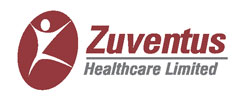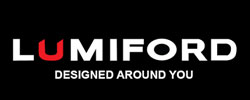Established in 1952, the Ministry of Communication and Information Technology, headquartered in New Delhi
with regional offices in Guwahati, Kolkata, Mumbai, and Chennai, oversees the Wireless Planning and
Coordination (WPC) wing. This department is responsible for managing and regulating the frequency
spectrum and issuing permits for amateur radio operators. In addition to these functions, the WPC is
authorized to issue WPC ETA Certification, which stands for Equipment Type Authorization Certification,
as well as other wireless certifications.
Any process involving equipment that uses radio frequencies requires permission. Before importing radio
frequency equipment or any wireless devices into India, authorization from the WPC is necessary. This
body ensures that service providers adhere to all licensing requirements. The Department of
Telecommunications (DoT) is responsible for wireless planning and coordination. This wing handles tasks
such as radio frequency testing and the regulatory requirements for wireless and frequency testing.
What is WPC Certification for India?
WPC Certification in India is essential for importing and marketing wireless devices. WPC stands for
Wireless Planning & Coordination, and it is a mandatory license issued by the Wireless Planning and
Coordination Wing of the Department of Telecommunications.
With the increasing prevalence of wireless technology, India’s growing self-sufficiency still relies on
certain high-quality foreign products. These international wireless devices have become more accessible
to consumers. If you’re involved in selling wireless equipment, obtaining a WPC ETA certification is
crucial and should be pursued without delay.
Which Products Require a WPC Certificate?
In India, obtaining a WPC certificate is necessary for various wireless products. This certification is
required for both importing and selling these devices. The products needing a WPC certificate include:
 Bluetooth Devices
Bluetooth Devices
 Bluetooth Headphones
Bluetooth Headphones
 Hotspot Devices
Hotspot Devices Smart Home Gateway
Smart Home Gateway
 WiFi Smart Watch
WiFi Smart Watch
 Wireless Camera
Wireless Camera Wireless Drones
Wireless Drones Wireless Keyboard
Wireless Keyboard
 Wireless Mouse
Wireless Mouse Wireless Nano USB
Wireless Nano USB
 Wireless Pendrive
Wireless Pendrive
 Wireless Plug
Wireless Plug Wireless Point of
Sale Terminals
Wireless Point of
Sale Terminals Wireless Receiver
Wireless Receiver
 Wireless Repeater
Wireless Repeater
 Wireless Speakers
Wireless Speakers
 Wireless Terminals
Wireless Terminals
 Wireless Home
Automation Devices
Wireless Home
Automation Devices Walkie Talkie
Walkie Talkie WiFi Router
WiFi Router Wifi Bulb / Smart
Bulb
Wifi Bulb / Smart
Bulb Wireless POS
Terminal
Wireless POS
Terminal Transmitter
Transmitter
The Regulatory Body for WPC Approval in India
The Department of Telecommunications (DoT) serves as the governing body responsible for WPC approval in
India. The Ministry of Telecommunications is the sole authority overseeing this department. Along with
issuing licenses, the DoT manages and monitors the frequency spectrum. The primary legislation governing
the licensing of various equipment types is the Indian Wireless and Indian Telegraphy Act.
Approval Authorizations of WPC Certification
The list of authorizations under Indian WPC certification includes the following:
 Equipment Type
Authorization Certificate
Equipment Type
Authorization Certificate
 Experimental
Approval
Experimental
Approval
 Dealer Possession
License (DPL)
Dealer Possession
License (DPL) Non-Dealer
Possession License (NDPL)
Non-Dealer
Possession License (NDPL)
 Import Licenses for
Radio Devices
Import Licenses for
Radio Devices
Regulations of WPC
The WPC is mainly responsible for allocating and managing the frequency spectrum, as well as issuing
non-professional radio licenses. The WPC operates through various divisions with specific
responsibilities, including:
 New Technology Group
(NTG)
New Technology Group
(NTG)
 Standing Advisory
Committee on Radio Frequency Allocation (SACFA)
Standing Advisory
Committee on Radio Frequency Allocation (SACFA)
 Licensing and
Regulation (LR)
Licensing and
Regulation (LR)
Types of WPC ETA Registration
There are several types of WPC ETA licenses or certifications, which are described below:
- Non-Network License
This license is issued to companies involved in non-network
services, such as wireless products and cable TV distributors. It is required to import,
purchase, and sell specific wireless equipment. To obtain a non-network license from the WPC for
wireless devices in India, a company must be incorporated and have qualified personnel for the
operation of the equipment. There are three main types:
- Import License: Required for exporting wireless products to India. This
license allows the holder to sell wireless devices within Indian territory.
- Dealer Possession License: Granted by the WPC to individuals or
organizations that distribute and deal in wireless products.
- Non-Dealer Possession License: Issued to individuals or organizations that
do not deal with wireless devices and do not hold a dealer license from the WPC.
- Network License
A network license is necessary for companies looking to provide
communication services such as cable, DTH, or mobile networks over the country's restricted
radio frequency spectrum.
- Internet Service Provider License (ISP): Any entity wishing to offer
internet services must obtain an ISP license from the Department of Telecommunications
(DoT).
- Experimental License: The WPC also grants experimental licenses to
individuals or organizations conducting research or experiments involving wireless
devices.
Equipment Type Approval & WPC ETA Certificate
When importing products into India, it's essential to ask: What compliances does my product need?
Ensuring that your equipment has a WPC ETA Certificate is crucial, particularly for devices like RFID or
Bluetooth. Let's delve deeper into what a WPC ETA Certificate entails:
Before importing any wireless device that operates within the delicensed frequency spectrum into India,
a WPC Equipment Type Approval (ETA) is required. Additionally, every product manufactured in India must
possess a WPC ETA certificate. This includes equipment such as Bluetooth devices, mobile phones, Wi-Fi
technologies, RFID, and similar gadgets.
If a product is manufactured domestically and incorporates RF modules that already have ETA approval, a
separate WPC ETA approval for the final product isn't necessary, provided no modifications are made to
the modules. However, all products manufactured outside India must have a WPC ETA certificate before
they can be imported. If there are different RF modules, each module will be covered under the
corresponding ETA.
Wireless products that meet the following criteria can obtain a WPC ETA certificate through
self-declaration:
 The product is exempt from the import license requirements outlined in DGFT's EXIM Policy.
The product is exempt from the import license requirements outlined in DGFT's EXIM Policy. The product operates within the delicensed frequency range.
The product operates within the delicensed frequency range. Examples include
mobile phones, smartphones, laptops, smartwatches, SRDs with accessories, speakers, headphones,
earphones, printers, scanners, mice, keyboards, TVs, and cameras.
Examples include
mobile phones, smartphones, laptops, smartwatches, SRDs with accessories, speakers, headphones,
earphones, printers, scanners, mice, keyboards, TVs, and cameras.
For items that don't fall under these categories, such as drones and specialized cameras, a WPC ETA
certificate can be obtained by submitting an online application through the standard procedure to the
relevant RLOs.
Importance of WPC License
Obtaining WPC certification is crucial for wireless products and holds the following significance:
- Product CompatibilityEnsuring seamless communication between devices is vital for
wireless products to function properly. During the application process, if the device fails to
communicate effectively with other devices, it is considered faulty.
- Safeguarding National SecurityWireless products can sometimes pose threats to
national security. Therefore, the Wireless Planning and Coordination wing enforces strict
regulations to ensure safe usage of such devices.
- Avoiding Frequency InterferenceCertain devices might inadvertently operate on
unauthorized frequencies, leading to interference with other products. An ETA certificate plays
a key role in preventing such frequency interference by ensuring compliance with approved
frequencies.
- Entering the Indian MarketAs more people in India opt for wireless technology for
convenience, the market for wireless products is rapidly growing. However, without WPC
certification, wireless devices cannot be sold or distributed in India. Therefore, an ETA
certificate is essential for anyone involved in manufacturing, selling, or importing wireless
products into the Indian market.
Eligibility Criteria for Applying for WPC Certification
The eligibility criteria for obtaining WPC Certification are outlined below:
- For Manufacturers and Importers: Manufacturers and importers whose products include
Bluetooth or Wi-Fi capabilities must obtain a Certificate of Import Authorization and WPC
certification before offering their products for sale in the Indian market.
- For Authorized Representatives: Foreign companies seeking WPC approval in India
must appoint an authorized representative. This designated representative will handle the Indian
filing process on behalf of the foreign applicant to secure WPC clearance.
- For Frequency Test Results: The results for the specific wireless accessory's
frequency must always be included. Each result should cover details such as resolution
bandwidth, video bandwidth, frequency, and sweep settings.
- For ISO Laboratory Reports: If the product is manufactured domestically, there is
no requirement for additional in-country testing. The key requirement is obtaining a specific
Radio Frequency (RF) report from an ISO/IEC 17025-accredited laboratory.
- For Delicensed Frequency Bands: All devices must operate within the designated
delicensed frequency bands, and any device with wireless capabilities must comply with the
delicensed frequency requirements.
- For Technical Documentation: The applicant must have a technical information sheet
ready, which may be requested by the relevant authorities during the application process.
Documents Required for WPC Certification
The following documents are needed to obtain a WPC Certificate in India for devices operating wirelessly
or for the import of wireless products:
- For Foreign Manufacturers:
 If no
liaison office is established in India, the foreign manufacturer must appoint an
Authorized Indian Representative (AIR) to submit the application.
If no
liaison office is established in India, the foreign manufacturer must appoint an
Authorized Indian Representative (AIR) to submit the application.
 If a
liaison office is set up in India, the branch must register as an AIR.
If a
liaison office is set up in India, the branch must register as an AIR.
 The
foreign company must authorize the AIR to obtain the import license on their behalf.
The
foreign company must authorize the AIR to obtain the import license on their behalf.
- For Indian Manufacturers:
 Indian
companies can apply for WPC ETA directly, provided they have all the necessary
documentation, without requiring an AIR.
Indian
companies can apply for WPC ETA directly, provided they have all the necessary
documentation, without requiring an AIR.
- For WPC ETA Certification:
 Product
technical specifications
Product
technical specifications
 Authorized representative’s identification and proof of address
Authorized representative’s identification and proof of address
 Company
registration documents
Company
registration documents
 Copy of
the company’s GST registration
Copy of
the company’s GST registration
 Radio
frequency test results
Radio
frequency test results
 Authorization letter from the company
Authorization letter from the company
 IEC
certificate for imports (if applicable)
IEC
certificate for imports (if applicable)
 Purchase
order for imported products, if applicable
Purchase
order for imported products, if applicable
 Receipt
of online payment for ASTM, EN, RoHS, or CE test reports
Receipt
of online payment for ASTM, EN, RoHS, or CE test reports
WPC Certification Process
Below is the step-by-step process for obtaining a WPC ETA certificate in India:
- Register on the WPC Online Portal: Start by registering on the Saral Sanchar
platform if you need a WPC certificate. You’ll need to submit an online application on the
Department of Telecommunications (DoT) website, specifying the products you wish to import to
obtain the WPC license. After submitting the application, the system will generate an Import ID
for tracking purposes.
- Apply for a New ETA: With each product you intend to export, you must provide a
self-declaration along with your ETA application. Using your Import ID, check whether your
device falls under the exempted items list for WPC ETA certification. Enter your Import ID and
captcha to verify products that use various radio frequencies (RFs).
- Obtain RF Test Reports: To secure ETA approval and WPC license registration, you
must submit an RF test report from a recognized laboratory. These reports ensure that the
equipment operates within the assigned frequency band and complies with safety standards.
As of 2021, the guidelines have shifted to prioritize RF test results from accredited Indian
labs. Unlike the past, when international test reports were acceptable, the process now
encourages local testing. A factory inspection is not necessary for acquiring the WPC license.
- WPC Application Submission:
Once all requirements are fulfilled, you can apply for WPC certification for your
wireless device.
- Submit the Required Documentation:
Prepare and submit the necessary documents to the Wireless Planning and Coordination
Authority, both online and offline. After submission, the documentation will be reviewed by WPC
officials for verification.
- Pay Government Fees: Complete the registration by paying the required government
fees online. Payments can be made through wallets or by using debit/credit cards.
- Issuance of WPC Certificate: After your application and documents are verified, the
WPC certificate will be issued for the specific product. Once the WPC license is obtained, you
can import wireless devices into India without any issues.
What is the Cost of WPC Certification?
For the most up-to-date and accurate information on the cost of WPC certification in India, it's
recommended to visit the official website of the Wireless Planning and Coordination Wing (WPC) under the
Ministry of Communications. Alternatively, you can reach out to WPC ETA consultants at SeaRoot, who can
guide you through the process and provide detailed insights regarding various permits, certifications,
and associated fees for obtaining a WPC ETA certificate.
Why Choose SeaRoot for WPC Certification?
At SeaRoot, we specialize in simplifying the process of obtaining WPC certification for your wireless
products. Our deep expertise and understanding of regulatory standards ensure that your products meet
all the compliance requirements quickly and efficiently. We guide you through every step of the
certification process, from documentation to approval, ensuring a hassle-free experience.
Choosing SeaRoot means you’ll benefit from:
- Expert Consultation: Our team provides accurate and up-to-date advice, tailored to
your specific needs.
- End-to-End Assistance: We handle the entire certification process, so you can focus
on growing your business.
- Industry Knowledge: With extensive experience in wireless certification, SeaRoot
ensures your products are compliant and market-ready.
Partner with SeaRoot for a seamless WPC certification process and enter the Indian market with
confidence.
Frequently Asked Questions
1.What is WPC Certification?

WPC Certification is a mandatory authorization required for importing and marketing wireless
devices in India. It is issued by the Wireless Planning and Coordination Wing (WPC) of the
Department of Telecommunications.
2.Who needs WPC Certification?

Manufacturers, importers, and sellers of wireless products such as Bluetooth devices, Wi-Fi
routers, and other radio frequency equipment need WPC Certification to ensure their products
comply with Indian regulations.
3.What documents are required for WPC Certification?

Documents typically required include product technical specifications, proof of authorized
representative, company registration documents, GST registration, RF test results, and an
authorization letter. Specific requirements may vary based on the product and applicant.
4.How long does it take to get WPC Certification?

The processing time for WPC Certification can vary depending on the complexity of the application
and the completeness of the submitted documents. Typically, it can take several weeks to a few
months.
5.What is the cost of WPC Certification?

For accurate and current information on the cost of WPC Certification, visit the official WPC
website or consult with experts like SeaRoot. Costs can vary based on the type of certification
and additional services required.
6.Is WPC Certification necessary for all wireless devices?

Yes, WPC Certification is required for all wireless devices that operate on designated frequency
bands in India. This includes devices with Bluetooth, Wi-Fi, and other radio frequency
technologies.









